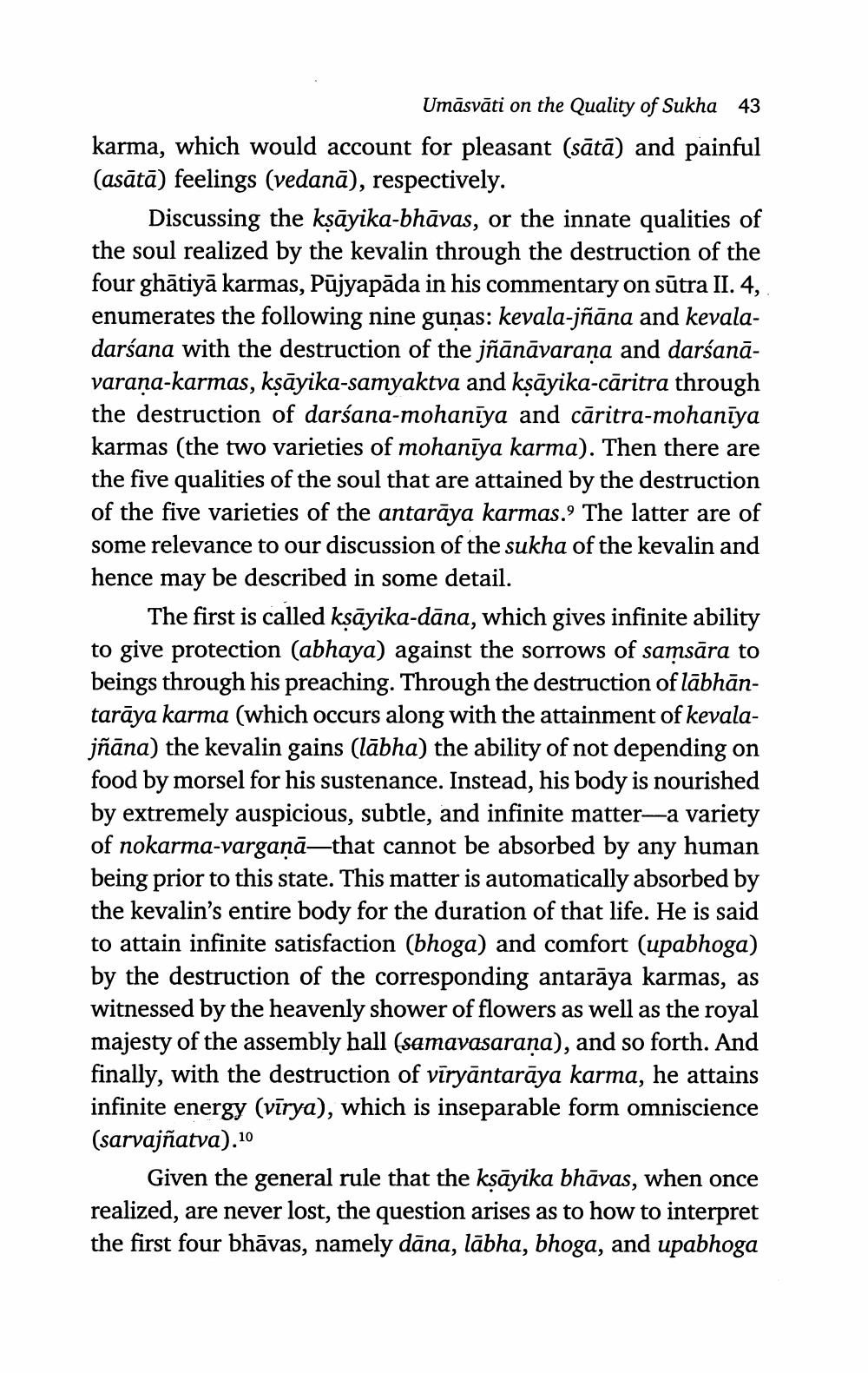________________
Umāsvāti on the Quality of Sukha 43 karma, which would account for pleasant (sātā) and painful (asātā) feelings (vedanā), respectively.
Discussing the kṣāyika-bhāvas, or the innate qualities of the soul realized by the kevalin through the destruction of the four ghātiyā karmas, Pūjyapāda in his commentary on sūtra II. 4, enumerates the following nine gunas: kevala-jñāna and kevaladarśana with the destruction of the jñānāvaraña and darśanāvaraņa-karmas, ksāyika-samyaktva and kṣāyika-cāritra through the destruction of darśana-mohanīya and cāritra-mohanīya karmas (the two varieties of mohanīya karma). Then there are the five qualities of the soul that are attained by the destruction of the five varieties of the antarāya karmas.' The latter are of some relevance to our discussion of the sukha of the kevalin and hence may be described in some detail.
The first is called ksāyika-dāna, which gives infinite ability to give protection (abhaya) against the sorrows of samsāra to beings through his preaching. Through the destruction of lābhāntarāya karma (which occurs along with the attainment of kevalajñāna) the kevalin gains (lābha) the ability of not depending on food by morsel for his sustenance. Instead, his body is nourished by extremely auspicious, subtle, and infinite matter—a variety of nokarma-vargaņā—that cannot be absorbed by any human being prior to this state. This matter is automatically absorbed by the kevalin's entire body for the duration of that life. He is said to attain infinite satisfaction (bhoga) and comfort (upabhoga) by the destruction of the corresponding antarāya karmas, as witnessed by the heavenly shower of flowers as well as the royal majesty of the assembly hall (samavasaraņa), and so forth. And finally, with the destruction of vīryāntarāya karma, he attains infinite energy (vīrya), which is inseparable form omniscience (sarvajñatva).10
Given the general rule that the kṣāyika bhāvas, when once realized, are never lost, the question arises as to how to interpret the first four bhāvas, namely dāna, lābha, bhoga, and upabhoga




